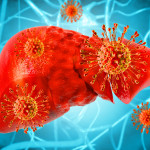West Virginia has been hit hard by the opioid epidemic, so it is important to identify people living with HIV and hepatitis C virus (HCV), which can be spread by injection drug use. A four-year $1.375 million grant aims to do exactly that. Funding goes to the West Virginia University (WVU) School of Medicine’s Department of Emergency Medicine and arrives from Frontlines of Communities in the United States (FOCUS), an initiative of pharma giant Gilead Sciences.
According to a press release from WVU Medicine, testing for the viruses is already under way at six clinical sites.
“We leveraged departmental expertise and infrastructure to win this competitive grant,” said Ian B.K. Martin, MD, MBA, and principal investigator on the FOCUS grant. “And in doing so, we have already increased our emergency department–based HIV and HCV testing by more than 5,000 percent.”
“Currently, West Virginia ranks second in the nation in the rate of acute HCV infections,” added Stephen Davis, MPA, MSW, in the press release. “A substantial proportion of these infections are acquired through injection drug use and needle sharing, which increases concern over possible coinfection with HIV. In addition to helping prevent disease transmission through early identification, our program also links patients to care, which is now more important than ever, given that HCV is largely curable and HIV can be managed as a chronic condition.”
WVU Medicine is sharing its model of screening with other clinical sites and related settings in the state and region.
“Ultimately,” Davis said, “we believe that scaled-up, electronic medical record-based screening and linkage to care will reduce morbidity and mortality associated with HCV and HIV in both West Virginia and other rural states grappling with the current opioid epidemic.”






1 Comment
1 Comment